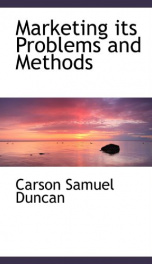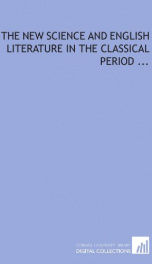marketing its problems and methods

Purchase of this book includes free trial access to www.million-books.com where you can read more than a million books for free. This is an OCR edition with typos. Excerpt from book: by wholesale' :br. retail, iftolrr.ene party to another, on their way from origin to consumption. A study of commercial organization is, therefore, a study of marketing problems and methods. In the discussion of economic theory, commercial organization becomes a part of distribution, but overlaps into production. From a broad point of view, there are but two parts of the economic process; one is production, the other, consumption. If the creation of value is the essence of production, then the distributive process, since it does add value to economic goods, is a part of production. The best means of keeping the meaning clear is to think of economic goods moving from their source to the doors of the factory, or to the consumer, and from the doors of the factory to consumer, through the mechanism of commercial organization. It includes all of the processes of transportation, storing, weighing, grading, buying, selling, etc. Commercial organization has to do primarily with the activities of the merchant; industrial organization has to do primarily with the activities of the manufacturer. 2. Place of Commercial Organization in the Economic Process.All economic goods move in a more or less continuous process from origin to consumer. Some steps of the process are often simultaneous, as, for instance, when goods are bought and sold in transit or during manufacture, or when the merchant stores his consignments of goods at the beginning of a season. There is no absolutely clear- cut line of demarcation between industrial and commercial organization. Industrial and commercial problems are, therefore, interlacing. The manufacturer, in locating his plant, will have to consider the problem of transportation, of buying his raw materials, and of selling his product. These are commercial p... --This text refers to an alternate Paperback edition.
Info about the book
Author:
Series:
Unknown
ISBN:
0471236098
Rating:
4/5 (2)Your rating:
0/5
Languge:
English
Users who have this book
Users who want this book
What readers are saying
What do you think? Write your own comment on this book!
write a commentif you like marketing its problems and methods try:
Other books by this author
Do you want to exchange books? It’s EASY!
Get registered and find other users who want to give their favourite books to good hands!


